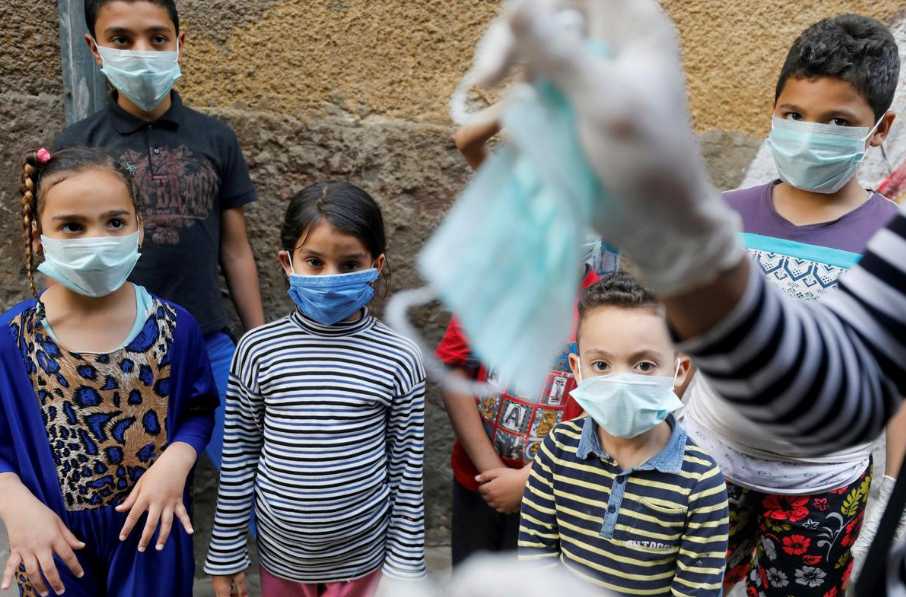The United Nations Children's Fund (UNICEF) on Monday appealed for 92.4 million U.S. dollars in new funds for the Middle East and North Africa to help combat the effects of coronavirus on already poverty-stricken areas.
"The region has the biggest number of children in need in the world due to ongoing conflicts and wars," said Ted Chaiban, UNICEF director for the Middle East and North Africa, in a statement.
This is not the first time the world organization has warned of the threat COVID-19 put for vulnerable children, and won't be the last time either.
On April 16, UN Secretary-General Antonio Guterres called on families and global leaders to "protect our children," who stand to suffer severe consequences of the pandemic even if they are at lower risk.
"I appeal to families everywhere, and leaders at all levels: protect our children," Guterres said in a statement, while presenting a report on the pandemic's impact on children.

Egyptian clown Ahmed Naser, performs to entertain and help children to put on face masks as a preventive measure amid concerns about the spread of COVID-19 in Darb Al-Ban district at Islamic Cairo, Egypt, April 13, 2020. /Reuters
The reason
For children in the Middle East and North Africa, Chaiban gave his thought on the reason why deprived children across the region could become the biggest victims.
The combination of a lack of "or inadequate basic services, years of conflict, poverty, deprivation and now COVID-19 are hitting vulnerable children the most, making their hard lives simply unbearable," said Chaiban, as nearly 25 million children in these areas are in need, including many who are refugees and internally displaced.
Unfortunately, the tragedy didn't happen by chance and the outbreak is impacting the world's younger generation in multiple ways.
According to the UN, there could be hundreds of thousands of additional child deaths in 2020 with the global recession gathering pace, and this estimate could in one year destroy the progress made over the last two or three in lowering the infant mortality rate.
As schools close across the globe due to the spread of COVID-19, children could also struggle with access to food, as "a staggering 310 million schoolchildren... rely on school for a regular source of daily nutrition," Guterres said.
The UN said that 188 of the 193 member nations have closed schools, affecting more than 1.5 billion children and youths.
Furthermore, lockdown measures and increased global recession are fueling increased tensions within families, and "children are both victims and witnesses of domestic violence and abuse," Guterres said.
Children's health could also suffer. In an attempt to stop the spread of the virus, Guterres explained, "Polio vaccination campaigns have been suspended. Measles immunization campaigns have stopped in at least 23 countries."
Multiple organizations and foundations estimated on April 13 that more than 117 million children could be deprived of measles vaccines due to the halt of vaccination campaigns.
How to help
Selina Sumbung, CEO of Save the Children Indonesia, which is a Jakarta-based humanitarian organization for children, shared her feelings with CGTN on what is currently being done to help the children in need.
Noting that it is hard to reach to deprived and marginalized children living in the remote areas, Sumbung suggested to get access to the data with the help of local governments, and called for media to raise public awareness about impacts on children.
"But the most immediate concern for us right now is also reaching to those who don't have the access to the internet, and can't learn from home," she emphasized, adding that these children are at risk of losing almost half of year's schooling.
"We would like the government to pay a very serious attention and don't overlook the fact that children are also affected even though not directly but in years to come."
(Cover: Iraqi children peek out of their Baghdad home during a disinfection campaign to stem the spread of the novel coronavirus. /AFP)
(With input from agencies)
